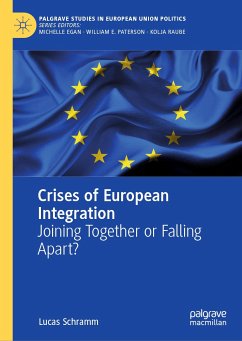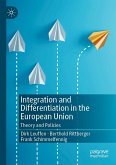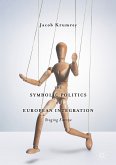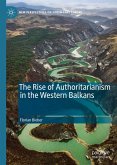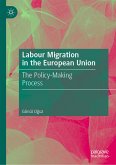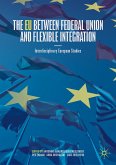--Ramona Coman, Université Libre de Bruxelles, Belgium
"Creative, refined, thorough, and innovative. At times when terms such as 'poly-crisis' and 'perma-crisis' have become standard vocabulary, Lucas Schramm offers a fresh look at European integration and crisis politics that combines empirical breadth, historical depth, and theoretical sophistication."
--Ulrich Krotz, Harvard University, United States
"The first theoretical book which adopts a truly long-term perspective on EU crises. Lucas Schramm brilliantly demonstrates that crises have had very different effects on the integration process by reviewing European integration since the 1950s."
--Christian Lequesne, Sciences Po Paris, France
This book provides explanations for the striking variation in the outcomes of European integration crises. Combining novel theoretical arguments with rich empirical evidence, it analyzes eight major crises over the entire European integration process, starting from the early 1950s and lasting until very recently. The cases comprise the crisis of the European Defense Community (1952-54); the empty chair crisis (1965-66); the oil crisis (1973-74); the budgetary rebate crisis (1979-84); the end of the Cold War crisis (1989-92); the Constitutional Treaty crisis (2004-07); the Euro crisis (2009-12); and the migration crisis (2015-16). Taking a historical-comparative perspective, the book shows that since the beginning crises have had an important but highly varying impact on European integration and the emerging EU polity.
Lucas Schramm is Researcher and Lecturer at the Geschwister Scholl Institute of Political Science at LMU Munich, Germany. His academic interests concern European integration history and theory, EU crisis politics, and Franco-German political relations. His research has been published in leading academic journals and in the form of chapters in handbooks and edited volumes dealing with different aspects of European integration.
Dieser Download kann aus rechtlichen Gründen nur mit Rechnungsadresse in A, B, BG, CY, CZ, D, DK, EW, E, FIN, F, GR, HR, H, IRL, I, LT, L, LR, M, NL, PL, P, R, S, SLO, SK ausgeliefert werden.

